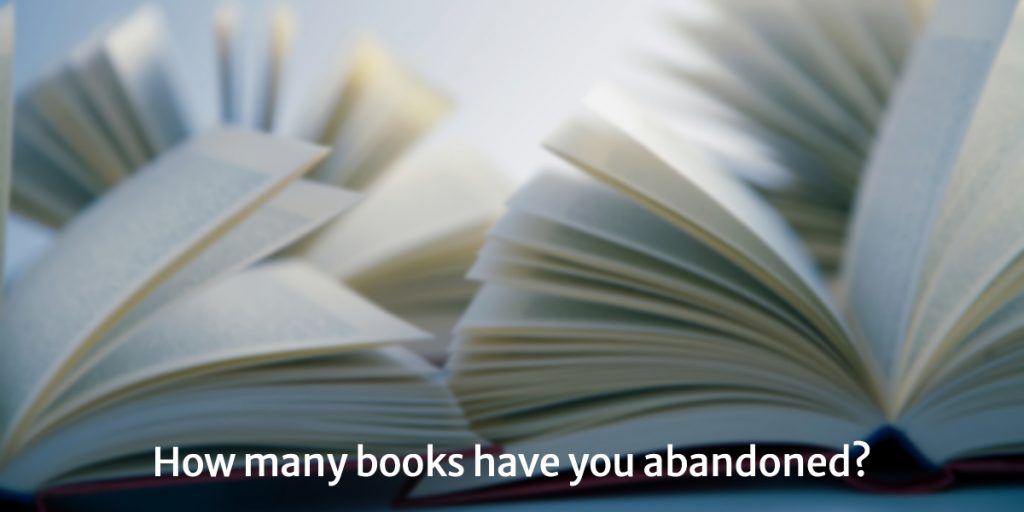
I have a quirky book problem. Once I get through the first few chapters of a book, I feel obligated to keep going, even if I’ve entirely lost interest.
I start skimming, flipping through pages—doing anything so that I feel like I reached the end legitimately. It seems absurd even as I do it, but if I page through to the last page, then I’ve met some kind of obligation and given the author the benefit of the doubt.
Sometimes I can’t even do that. My Kindle is cluttered with the relics of books that I cannot quite delete. Let’s not even talk about my bookshelves.
Maybe it’s the sunk cost fallacy—I’ve read this far, I will have wasted this time if I stop.
Maybe it’s too much conscientiousness. Abandoning a book is like returning a pet to a shelter. I picked it up, I ought to finish it—so says some inner voice.
How about you?
What do you do if you’re bored with a book 50 pages in? Do you keep reading out of a sense of obligation, or put it down and do something else?
Unless you have to read it for a book club, a class assignment, or your job, you probably move on.
Think about this the next time you’re writing something. Most readers aren’t like me, hanging on until the last page, always looking for one more path into a work.
In most cases, the reader has no obligation to finish, much less start, anything you write, whether it’s a book, a blog post, or an email.
What We Learn in School Misleads Us
When we learn to write in grade school, our teachers offer careful guidance on everything we turn in. Through high school, they continue to read our papers with great attention. (Teachers everywhere, I salute you.)
This is how we improve. Those red marks on our returned papers may distress us, but they signal that the reader was paying attention.

As we continue in higher education and professors and teaching assistants in college wade through our prose, we learn to rely on that committed reader. We know that someone has to read what we’ve written to grade it. In fact, we’re paying for that grade, indirectly. They owe us that much.
Once you leave that environment, no one owes you that level of attention.
If they wanted to train writers for the real world, professors would include another grade—how willingly they read it.
The Reader Owes Us Nothing (Yet)
Start with this assumption: The reader owes you nothing. Not their attention, not their focus and deep thought, nothing.
Joseph Jaffe and I had a conversation about this recently on his wonderful CoronaTV series. His response to my statement that the reader owes us nothing really nails it:
“The best place to begin is with that profound statement, ‘The reader owes us nothing.’ If you begin from that place, you can only benefit, you can only gain. You can never detract. You can never get into negative territory if that is your base and your starting point.”
Joseph Jaffe
No one owes you, or your words, attention—but you can earn it.
Earning the Reader’s Attention
Earn attention by taking the reader’s perspective (cognitive empathy) and:
- Offering valuable information
- Engaging their curiosity
- Making the reading experience enjoyable
The more of these you can do, the more attention you will earn.
(Watch the one-minute clip below for this conversation.)
Related Content
Watch the entire CoronaTV segment on Youtube:
Read this post about the Servant Authorship Mindset.